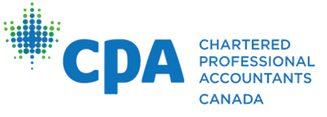Not-for-Profit PolicyPro® From Policy to Signoff ™

Non·prof·it
Made for Canadian Non-Profits
It’s essential that a non-profit demonstrate to donors, members, government regulators and the public that the organization is managed effectively and meets legal requirements. Good governance is a hallmark of a well-run organization.
Strong policies, procedures and other internal controls are essential to effective management.
A robust set of policies helps you:
- Meet legal requirements and recommended best practices
- Manage your administration and finances
- Understand your human resources obligations
- And so much more
Whether you’re the Executive Director, a board member, a manager or an administrator, you have a duty to act according to the law, the organization’s by-laws and the public’s expectations. That means:
- Responsible governance and administration
- Strong financial management
- Ethical advocacy and marketing
- Compliant employment practices
Not-for-Profit PolicyPro (NPPP), the leading source for up-to-date model policies and commentary based on Canadian compliance and best practice, is a resource you can depend on to ensure that your organization’s policies and procedures manual is up to date and meets the minimum compliance requirements and best practices for non-profits.

Au·thor·i·ty
Expert Policy Templates and Guidance
Not-for-Profit PolicyPro offers a complete and authoritative set of model policies written for the unique needs of non-profits and includes:
- A practical and effective method to understand legal requirements to ensure legal compliance and minimize risk
- Over 110 ready-to-use and easy-to-customize policy and procedure templates, forms and checklists for governance, advocacy, membership, finance, HR and more
- Documents written and updated regularly by subject-matter experts
- The weekly e-newsletter, Inside Policies™, reports new and revised policies and why the changes are important
- Plus a secure and easy-to-use online application for creating and updating policies, distributing them to managers, staff and contractors, ensuring everyone reads them, getting signoff, producing reports and notifying everyone of news, policy changes and required postings
Start your free 30-day trial of PolicyPro®
No credit card, no obligation!
Non-profit organizations get 20% off when they subscribe.
Not-for-Profit PolicyPro Model Policies
In PolicyPro, you’ll find an expert-prepared and compliance-focused policy template for all your organization’s needs. Plus, PolicyPro makes it easy to modify and update policies and add your own.
The following lists many of the unique policies included with NPPP that are essential for a well-organized non-profit.
Advocacy and Public Policy
- Advocacy Primer
- Establishing Policy Positions
- Communication
- Lobbying
Corporate Administration
- Registering the Organization
- Incorporation and Bylaws
- Annual General Meeting
- Records Retention
- Legal and Regulatory
- Taxes and Charitable Returns
- Information Technology
- Customer Refunds – Retail
- Confidentiality and Privacy
- Managing a Security Breach
- External Audits
Financial Management
- Financial Management Primer
- Revenues
- Expenses
- Assets
- Cash Management
- Budgets, Forecasts and Reporting
- Investment Management
Governance
- Board of Directors
- Board Processes
- Roles and Responsibilities
- Ethics
- Risk Management
- Strategic and Business Planning
Human Resources
- Human Resources Primer
- Recruitment, Selection and Orientation
- Performance Planning and Management
- Volunteer Management
- Compensation and Working Conditions
- Internship Management
- Workplace Harassment and Violence
Marketing and Membership
- Marketing Strategy, Planning and Tools
- Social Marketing
- Donor Relations and Fund Development
- Membership
- Marketing Compliance
- Websites and Social Media

A·ware·ness
Advocacy and Public Policy
Communications and advocacy activities are designed to generate public awareness of issues or needs, educate the public about an issue, influence governments and shape goodwill toward the organization. Each of these goals requires careful planning and implementation. Effective communication can have a tremendous payoff for not-for-profit organizations. Goodwill and support from the public, donors and related organizations are priceless assets.
Responsible development of public policy positions can greatly enhance your ability to positively influence the legal, regulatory and policy environments in which you operate. Good policy positions are well-researched, well-reasoned, consistent with the mandate of your organization, approved by the board of directors and communicated effectively. If your organization has a reputation for reliable, credible information and analysis, your lobbyists will have a greater chance of successfully influencing government decision-makers, donors and other key stakeholders.
No matter whether your organization is lobbying government, influencing industry associations, communicating with the public or spreading news internally, strong policies to make sure you’re following the law and best practice are an essential component of your advocacy plan.

Re·spon·si·bil·i·ty
Corporate Administration
Non-profit organizations strive to operate based on sound principles and good business practices in order to fulfil their missions and support their communities.
When you are involved with a not-for-profit organization, you are in a position of trust, referred to as a fiduciary relationship. Whether you are an officer, director, employee or volunteer, you have a responsibility to the organization, the clients or members and even prospective members. You may also have responsibilities to other bodies such as Corporations Canada (or the provincial equivalent) and the CRA.
The policies and procedures on corporate administration in NPPP help you set out explicit written requirements that cover the administrative functions required by a not-for-profit organization. Even small organizations should consider each of these policies and how to apply the principles implicit in them to their organization.

Ac·count·ing
Financial Management
Good financial management practices include:
- Informative accounting systems
- Financial risk management, including cash and asset management
- Prudent budgeting
- Responsible reporting to members and the public
- Sound financial policies and practices
Not-for-Profit PolicyPro provides accounting fundamentals for non-accountants. It also provides an overview of financial risk management and controls and touches on accounting software. The sample policies also cover revenues, expenses, assets, cash management, budgets, forecasting and financial reporting.
Effectively generating and managing revenue flows are almost always critical success factors for not-for-profits. While many non-profit organizations have some form of sales revenues through retail operations or fee-for-service arrangements, these are generally not their core revenues. Strong revenue-related policies (like those in NPPP) include elements such as prudent fund development practice, controls over charitable receipting, capital campaigns, membership fees and special types of donations such as bequests and gifts-in-kind.
The accounting and financial management policies and procedures policies in NPPP enable an organization to demonstrate responsible stewardship of funds while at the same time helping control spending. This includes supplier management, including a well-designed request for quotation/proposal (RFQ/RFP) process and a means of accounting for cooperative purchases.

Gov·ern·ance
Non-Profit Governance
The goal of effective governance is a robust organization that achieves peak performance and is accountable to those that it serves. The board of directors is the chief vehicle for the governance of a not-for-profit. It represents the members and stakeholders in providing accountability for and overall direction to the organization.
Poorly thought-out or poorly articulated governance policies, beginning with those related to the board of directors, have been the cause of many problems for not-for-profits. A good set of policies provides both value and stability to the organization over the long term. Care and attention to board orientation, board development and board succession planning can make a huge difference in board and organizational effectiveness.
Almost all decisions have inherent risks and rewards. Identifying, assessing, planning around and managing risks is an important part of organizational governance, integral to strategic and business planning. Risk management helps prevent surprises, losses due to theft or fraud and trauma in the case of emergencies. It promotes better change management, more efficient use of available resources and improved decision-making.
In order to achieve coherence in the overall planning, particularly in the time sequencing of planning, policies and procedures for business planning are essential.

Em·ploy·ment
Human Resources
Federal, provincial and territorial employment legislation generally mandates a minimum set of standards that employers must meet and employees have a right to expect.
In addition, there are other laws that affect some aspects of the employer-employee relationship. These include:
- Human Rights
- Employment Standards
- Occupational health and safety
- Payroll and other taxes
- Employment equity
- Privacy
It is essential for organizations to know how employment-related laws affect them and to develop required policies to comply with the law. NPPP provides the information you need to understand your human resources obligations.
Organizations that need a robust human resources policy manual should consult Human Resources PolicyPro.

Sales
Marketing and Membership
Marketing is crucial for not-for-profit organizations and is distinct from advocacy, discussed above.
Marketing is often viewed as a “soft” subject: subjective not objective, qualitative not quantitative. But selling the organization, its mission and even particular products and services is a central driver of success. Thus, marketing activities should be based on hard data, planning, clear objectives and analytical follow-up. Activities should be disciplined and operate in a controlled environment.
As with other elements of the organizational management, marketing activities entail their own internal control processes. There are also some compliance requirements associated with the marketing function, such as Canada’s Anti-Spam Legislation.
Clear and compliance-focused policies make it far easier to successfully manage marketing activities while meeting legal requirements.
PolicyPro Subscription Price
$1,250/year/database
No credit card, no obligation!
Discount available for purchasing additional policy databases!
Author and Editorial Team
Content Editor
Apolone Gentles, JD, CPA, CGA, FCCA, is an Ontario lawyer and editor with over 20 years of business experience.
Ms. Gentles has held senior leadership roles in non-profit organizations, leading finance, human resources, information technology and facilities teams. She has also held senior roles in audit and assurance at a “Big Four” audit firm. Apolone has also lectured in auditing, economics and business at post-secondary schools.
Managing Editor
Yosie Saint-Cyr, LLB, was called to the Quebec bar in 1988 and is a member in good standing. She practised business, employment and labour law until 1999 before becoming Managing Editor at First Reference.
Yosie is responsible for the high-quality, up-to-date content for employment law services and the Internal Controls Library. She is currently enrolled in the Osgoode Professional LLM degree program.
Author Emeritus
Jeffrey D. Sherman, Bcomm, MBA, CIM, FCPA, FCA, has had over 20 years of executive management experience. He is a former director or CFO of several public companies. His extensive knowledge and experience includes corporate governance, risk management, accounting and finance, restructuring and start-up enterprises.
Mr. Sherman has lectured and conducted seminars for many organizations and was an adjunct professor at York University for 15 years. He is a popular course director and course author for many organizations, including The Chartered Professional Accountants of Canada (CPA Canada) and other provincial institutes of chartered professional accountants and law societies, and has written many books and articles on finance and accounting.
Stephanie F. Smith, BComm, MBA, also contributed to NPPP for many years.

Part·ner·ship
Co-marketed with CPA Canada®
First Reference and CPA Canada have worked together for over 15 years to market PolicyPro’s Internal Control Library, including Finance & Accounting PolicyPro®, Information Technology PolicyPro®, Not-for-Profit PolicyPro® and, more recently, PaySource®.
CPA Canada believes that these publications are useful to practitioners who provide assistance to clients to develop and implement sound internal controls, as well as to those working in business who have responsibility for these matters.
Print ISSN 1915-2906 | Online ISSN 1923-8924
Start your free 30-day trial of PolicyPro®
No credit card, no obligation!
